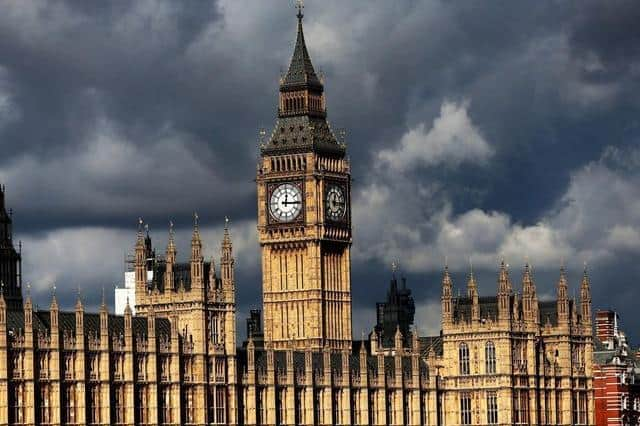Labelling people facing the loan charge as 'serial tax avoiders’ is causing deep upset, say MPs
The All Party Parliamentary Loan Charge and Taxpayer Fairness Group has said that it is unfair and wrong to label those facing the loan charge as serial avoiders because the vast majority of people facing the charge acted on professional advice and did not intend to avoid paying tax.
The APPG has written to Jim Harra, the Chief Executive and Permanent Secretary of HMRC, to express its concerns about “the continued existence, or not, of the serial avoiders unit”.
Advertisement
Hide AdAdvertisement
Hide AdThe letter, which has been signed by the APPG co-chairs Sammy Wilson MP, Greg Smith MP and Mohammad Yasin MP, says: “We have been contacted by people facing the loan charge, who understandably are deeply upset at being dealt with by something called the serial avoiders unit, when as HMRC are well aware, the vast majority of those facing the controversial loan charge took professional advice and many were also mis-sold schemes as tax law compliant and being without risk.


“As our own research shows the vast majority of victims caught by the retrospective loan charge used the arrangements they did as a result of taking professional advice and not to avoid tax, rather to avoid being caught by ‘IR35’ legislation and (ironically) therefore, to avoid the chance of being pursued by HMRC.
“We therefore also feel that for HMRC to label those facing the loan charge as ‘serial avoiders’ is unfair and wrong, as well as pursuing them via a so-called serial avoiders unit is deliberately intimidating and another example of the deeply unfair way in which HMRC have mis-represented people, including through the controversial use of behavioural insights.”
The letter to Mr Harra says that a Freedom of Information request from November last year stated that the serial avoiders unit was closed down in 2019.
Advertisement
Hide AdAdvertisement
Hide AdHowever, the APPG said it had been contacted by a person facing the loan charge who received a letter in October 2021 with the opening paragraph: “The serial avoiders unit is the subdivision of HMRC in which I work and the above is my address for correspondence purposes.”
The APPG letter states: “When was a decision taken to assign some people facing the loan charge to the serial avoiders unit and why? Why was the statement made in the FOI response dated November 10, 2021 that the serial avoiders unit had been closed down in 2019 yet HMRC officers are writing from it in 2021?”
An HMRC spokesman told The Yorkshire Post: “We will consider the letter’s points and respond in due course.”
HMRC has previously stated that the loan charge was introduced to ensure those who used disguised remuneration tax avoidance schemes paid their fair share of income tax and national insurance contributions.
Advertisement
Hide AdAdvertisement
Hide AdA spokesman said recently: “Individuals are responsible for their own tax affairs, and it is only right that we continue to tackle these type of avoidance schemes as they deprive our public services of vital funding. We encourage anyone who is worried about paying their loan charge to contact us so we can help.”
Sir Amyas Morse led a review into the policy in 2019 and concluded that it was right that the loan charge remain in force.
The Government said it had recognised concerns around its impact, which is why it accepted all but one of the recommendations made, leading to significant changes in legislation.
HMRC has said it is committed to working with taxpayers to enter manageable payment plans to spread their tax liability and ensure that they are affordable.
Advertisement
Hide AdAdvertisement
Hide AdThe loan charge was designed to tackle tax avoidance schemes where individuals receive income in the form of loans that are not repaid to avoid income tax. The Government announced a review in 2019 after the policy left thousands of people on modest incomes with large and unexpected tax bills.
In December 2019, the Government announced a package of changes to the loan charge in response to the Morse review, but the APPG still believes the policy is flawed and has called for a “fair resolution”.
Comment Guidelines
National World encourages reader discussion on our stories. User feedback, insights and back-and-forth exchanges add a rich layer of context to reporting. Please review our Community Guidelines before commenting.
